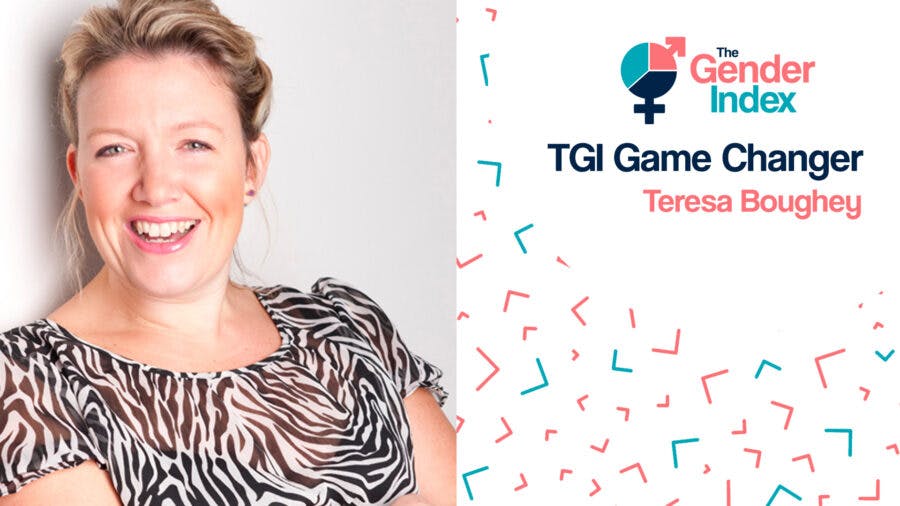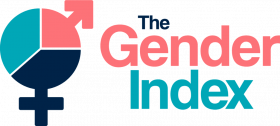We use cookies to effortlessly improve your experience on our site. Cookies also help us understand how our site is being used, so that we can keep making it better. You can read more about it in our cookie policy and change your settings here at any time.
It’s imperative for organisations to benchmark, set targets and measure progress to create real change

Here, thought leader and TGI Game Changer, Teresa Boughey addresses the importance of The Gender Index data, particularly for the diversity agenda.
Teresa is the founder and CEO of Inclusion 247, a company that helps organisations build diverse and inclusive work forces.
As a female business owner, what does The Gender Index mean to you and why is it important?
I sit (alongside your chairman Jill Pay) on the All Party Parliamentary Group for Women and Enterprise (WAE APPG) and I’ve been a hugely passionate supporter of The Gender Index and gender disaggregated data within the SME space, as it’s simply not been available.
My company works with organisations to help them create a more inclusive culture. They often struggle because they don’t have the data, and it’s a barrier for them.
Data is critical, and all the associated organisations no longer have an excuse! They can see what’s going on and what needs to change. It may make uncomfortable reading for some, but it draws a line in the sand, and gives us a baseline and something to work towards.
It provides Local Enterprise Partnerships (LEPs) and the Business Chambers of Commerce with leverage to support members and wider businesses to drive change.
In your capacity as an inclusion and diversity specialist, what are the biggest challenges women face?
When I work with organisations, I encourage them to approach diversity and inclusion through an intersectionality lens, which works to understand and peel back overlapping layers of discrimination. As opposed to just working with singular identity groupings.
If I think about myself personally, I was a teenage Mum and had many social value labels levied at me from a very young age. It’s always felt more challenging to climb the corporate ladder, especially compared to my male counterparts.
Another challenge I see for Women Entrepreneurs is access to finance. This is a key area being looked at by the WAE APPG. Women are often slightly more risk averse and less inclined to seek financial support. There is – as we know – a significant gap between male and female-led companies when it comes to raising investment.
But, encouragingly, we do still see a lot of women setting up companies. And I do think there’s so much potential to grow this number.
Why do you think it’s important that we grow the number of female founders?
There’s been plenty of research on the economic benefits. That alone is an enormous reason!
The other area of increasing focus is sustainability and the race to net zero. Consumers are demanding more sustainable products and services and employees want to be part of something that enables them to have a greater impact on wider society. It is therefore unsurprising that Environmental, Social and Governance (ESG) considerations have risen to the top of the leadership agendas, and will feature heavily going forward in supply chain decisions. This creates fantastic opportunities for female founders who want to make a difference while growing a business.
How can The Gender Index help with the diversity agenda in general?
It’s imperative for organisations to benchmark, set targets and measure progress. They can use the Gender Index to attune their products and services to the communities they serve.
Organisations that have female leaders and a diverse leadership team, where the culture is inclusive and people feel they belong, will ultimately form an environment which is more creative, innovative and resilient. Combine this with a strong ESG profile and the organisation will be more attractive to potential investors, lenders, employees and customers, and as such safeguard their long-term sustainability.
What opportunities could it help generate?
There is so much credibility in the data, not just nationally, but also at a local and regional level. So, it will give local government and councils a real focus, which is something we’ve seen from the recent West Midlands roadshow in Birmingham. They will have the evidence they need to implement plans to support and grow the number of female founders within their communities.
What is your one piece of advice for female entrepreneurs?
Surround yourself with people you aspire to, who can mentor you. Especially those that have been there and done it, because they can fast-track your mistakes – trust me, they will have made them!
Above all, keep going!

